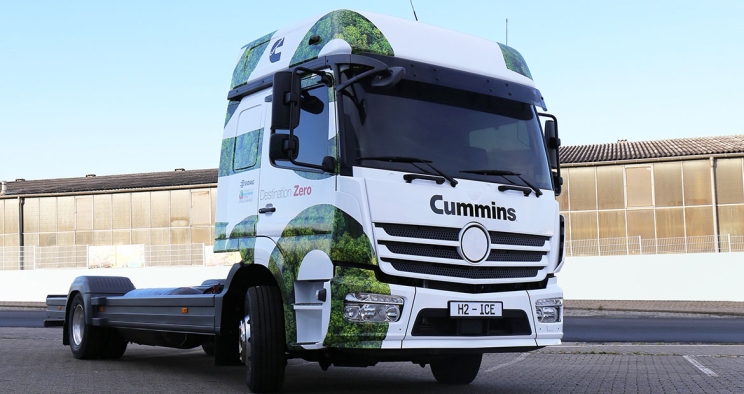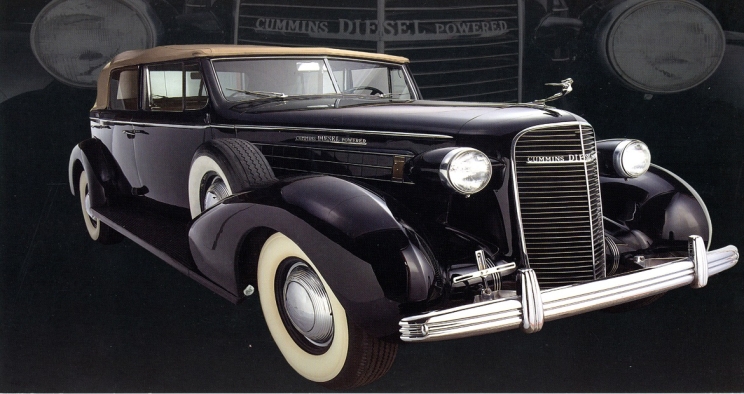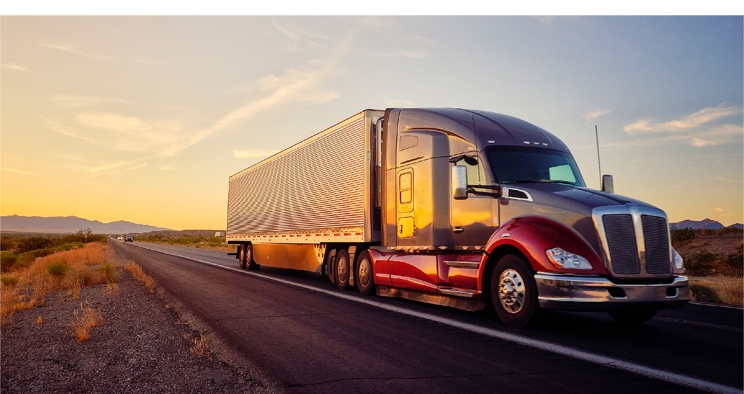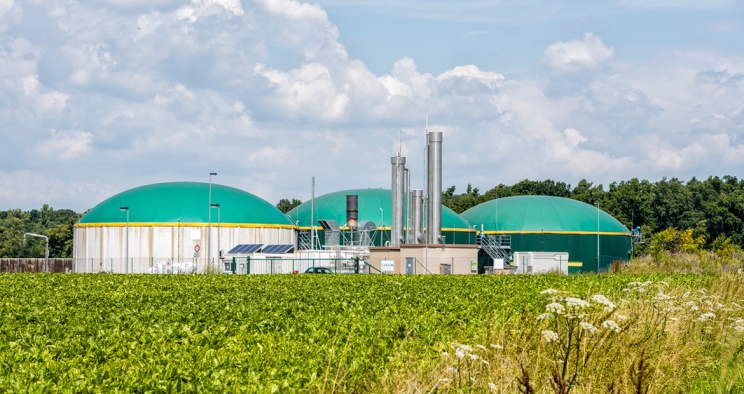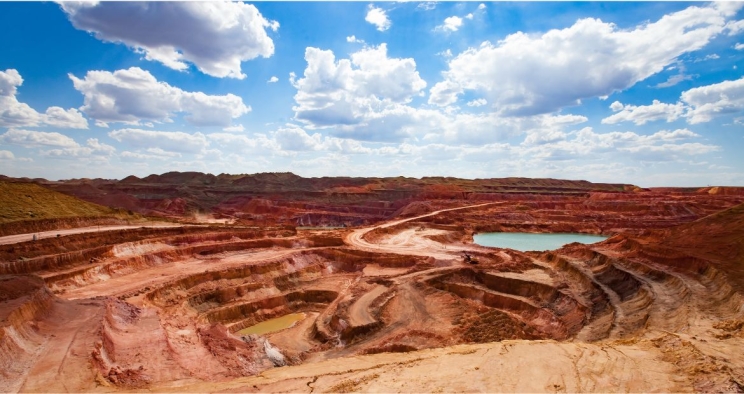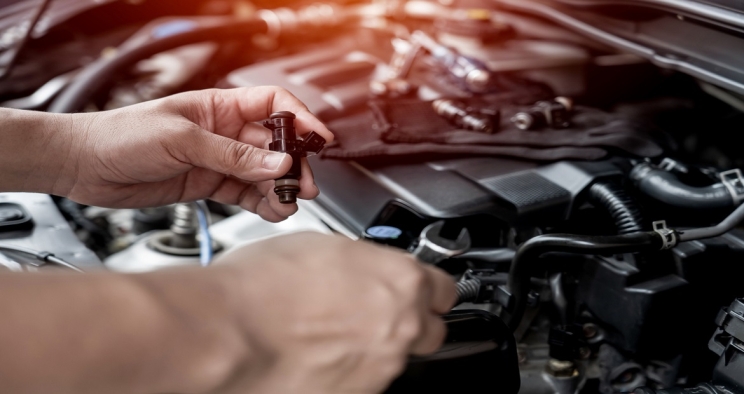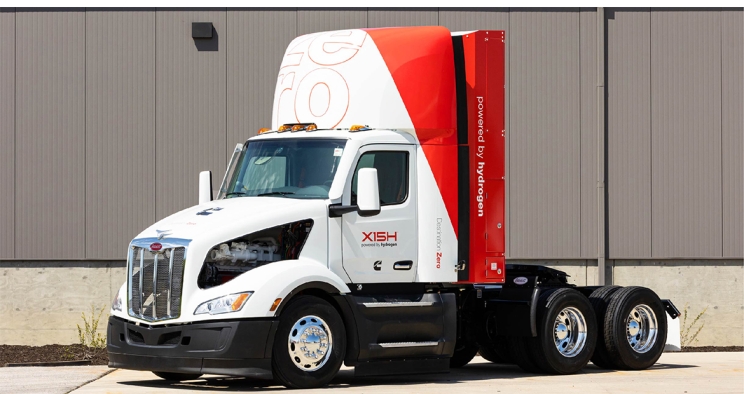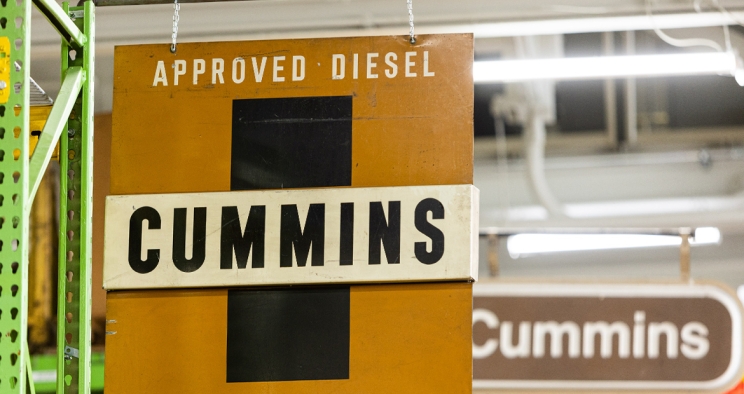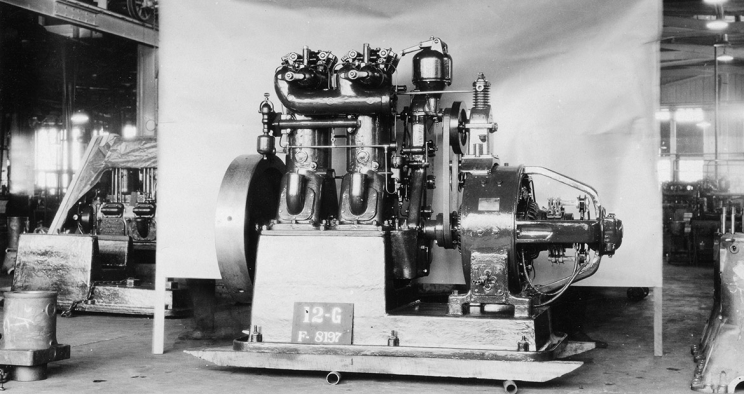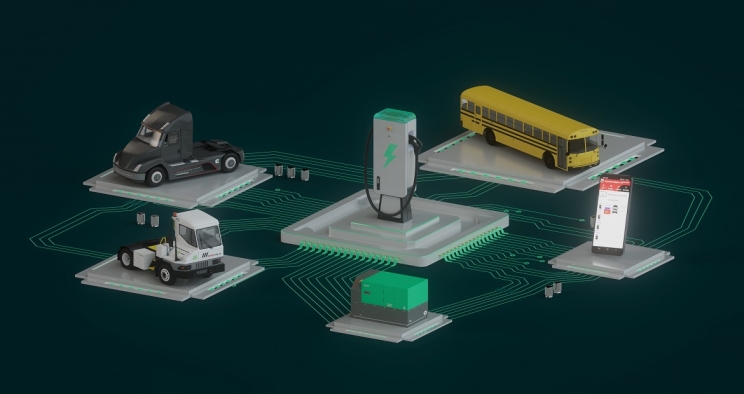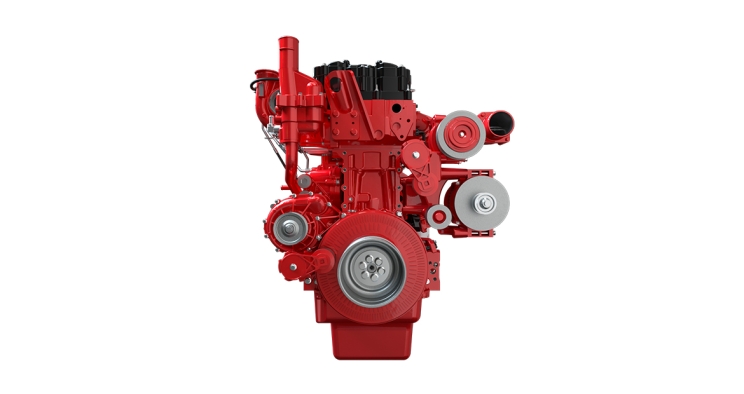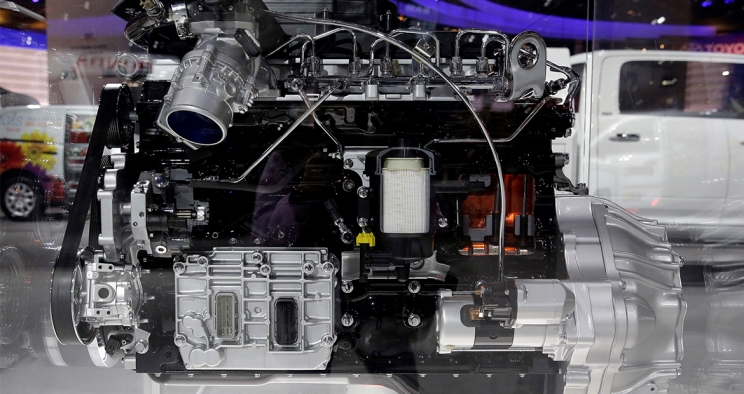Welcome to the era of smarter, cleaner power

The journey toward reduced emissions requires the availability and use of a range of fuel types, making Cummins Inc. uniquely positioned to lead in this energy transition. Destination Zero is our strategy to accelerate the reduction in greenhouse gas (GHG) emissions while simultaneously improving air quality by providing the widest range of power technologies for customers to customize their energ
Roughly three years ago there was not much talk about hydrogen engines according to Jim Nebergall, Executive Director - Market Strategy, Cummins Inc. "When I started, nobody knew what this was," said Nebergall who also serves as Cummins' general manager of hydrogen engines. "We decided this is important enough for Cummins to focus on." The Biden administration, the European Union and t
The transportation industry is continuously evolving, incorporating advanced technologies to improve efficiency, reduce costs and minimize environmental impacts. One key technological advancement is Model-in-the-loop (MIL) testing, a process that is revolutionizing how engineers approach engine development and testing. This article explores the concept of model-in-the-loop testing and dives into t
Clessie Cummins is known for improving existing diesel engines, creating new diesel engine designs, and setting world records for endurance and speed in trucks, buses and race cars. Perhaps not as well-known are his early endeavors in promoting the efficiency of diesel power in automotive applications. From coming up with a marketing plan promoting his Model A diesel engine in a 1935 Auburn con
The world population has grown to nearly 8 billion people and is anticipated to reach 9 billion people by 2040. With such growth, global energy demand is expected to increase by 15% in the coming decades. 1 That means all available fuel solutions will be necessary to meet the increased demand for affordable energy. Biodiesel is one of those solutions. Today, more companies are focusing on th
As we enter the energy transition in the transportation industry, alternative power continues to emerge, many grounded on the technologies, designs and innovations of our existing power sources like diesel engines. Battery electric powertrains are increasingly popular, due to their zero emissions status, low upkeep costs and simplified maintenance, but not everyone is ready to switch to electric p
As the transportation industry experiences the energy transition, customers require multiple power solutions and fuel types to customize their journey toward decarbonization in a way that meets their needs today and in the future. Biodiesel is one alternative fuel customers can integrate into their fleets for immediate impact on their carbon emissions. As of 2007, all Cummins Inc. diesel engine
On Feb. 6, an alliance of some of the country's biggest names in vehicle and engine manufacturing and supply, the Heavy-duty Leadership Group, released a joint "Statement of Principles" calling on the Environmental Protection Agency (EPA) to finalize a rule by March 31st to implement new greenhouse gas standards for heavy-duty commercial vehicles. The Heavy-duty Leadership Group companies, which i
What is renewable natural gas? Renewable natural gas (RNG) differs from fossil fuels as it's produced from various types of waste, like used cooking oil, animal waste, sludge from wastewater, manure and other waste materials. As these biodegradable materials decompose, methane is released. This methane is captured and converted into RNG. Because methane is the primary component o
What is the fuel delivery system? The fuel delivery system is one of the most critical components in a vehicle and is the heart of a vehicle's power generation process. The fuel delivery system serves a similar function to a fuel tank in diesel-powered vehicles. However, the fuel delivery system is specifically designed to handle gaseous fuels like hydrogen and natural gas, both of which are
For the past decade, mining operations have been focused on lowering cost of production, merging together Total Cost of Ownership (TCO) and amount of production achieved. Today, a third factor is impacting the equation: sustainability. Lowering costs and boosting production only go so far, considering the increasing importance of protecting the environment and the communities where mines
2023 has proven to be another exciting year for Cummins Inc. and its Engine Business Unit (EBU) team with the numerous milestones and product launches announced throughout the year. EBU is the core of the company's five business segments which designs and manufactures state-of-the-art diesel, natural gas and other engines for on-highway and off-highway use. There's no question EBU employe
The best fuel injectors enable an engine to generate maximum power while minimizing fuel consumption and reducing pollution. Fuel injectors with the latest technology help reduce carbon and greenhouse gas emissions by delivering accurate fueling with optimized air mixing. This article outlines what a fuel injector is and how it works in diesel, natural gas, and hydrogen engines as well as in hydro
Companies working to achieve their decarbonization goals are increasingly interested in hydrogen engines. Over the past year, leading companies like Tata Motors, Buhler Industries and Werner Enterprises have expressed interest in Cummins 15-liter hydrogen engine. More leading companies can take advantage of hydrogen-powered solutions to decarbonize as these technologies become more cost-friendly a
Advanced diesel engines fuel many of the world's most vital industries. Boats, barges, and semis move most products that consumers use every day. Agricultural equipment ensures we have the food and natural resources we need. Construction equipment powers our infrastructure. But what exactly is a diesel engine? How does it work? And what are the primary parts and features of a diesel engin
The diesel engine working principle was completed by the inventor, Rudolf Diesel, in 1892, and the first prototype was created in 1897. In the years following, he continued to work on improving his theory, and others soon realized the potential of this invention and started making their own versions. One of the people to recognize the importance of the diesel engine was Clessie Lyle Cummins. In 19
Rudolf Diesel and Clessie Cummins have many things in common. The most notable being their desire to find efficient solutions to problems with one goal in mind - making the world a better place. The invention of advanced diesel engines has continued and will continue to shape our world. With organizations like Cummins at the helm, advancements in diesel technology will undoubtedly propel us all in
Advanced diesel engines are some of the most fuel and energy-efficient options in the market, but those are just the beginning of their advantages. Some of their advantages are emotional. For a hundred years, people have been firing up a diesel engine to start their work day. But the environmental impact of that economy is now under increasing regulations. Innovative aftertreatment systems and cut

